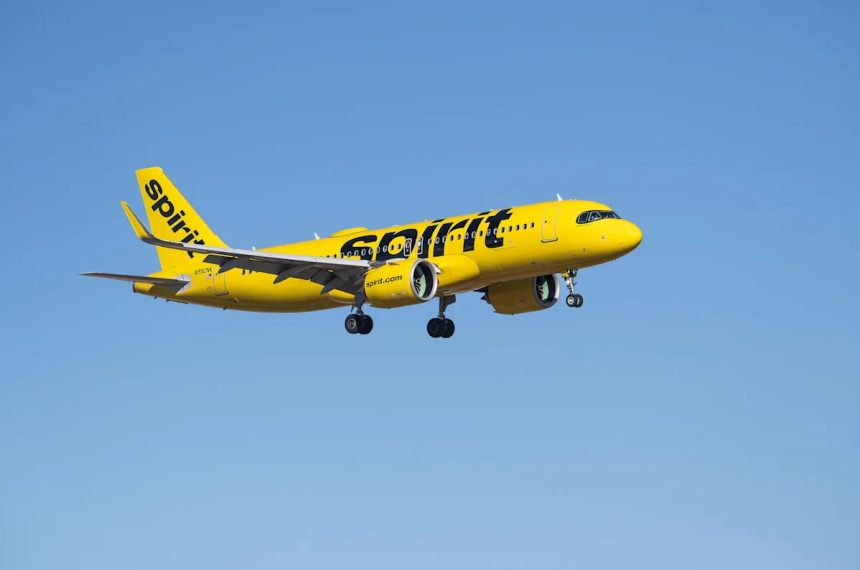This week, Spirit Airlines will end service to nearly a dozen cities. The bankrupt low-cost carrier is cutting staff, grounding planes and slashing its flight schedule as it searches for a route back to profitability.
Spirit will drop service to 11 cities the week of Oct. 2 in the western and southern U.S. The cities where service is impacted include: Albuquerque, New Mexico; Birmingham, Alabama; Boise, Idaho; Chattanooga, Tennessee; Oakland, California; Columbia, South Carolina; Portland, Oregon; Sacramento, California; Salt Lake City, Utah; San Diego, California; and San Jose, California.
The budget carrier will also ground plans to launch service in Macon, Georgia and in the coming weeks, they’ll exit Hartford and Minneapolis.
“I think it’s unfortunate to have less options and I think it makes it easier for the larger airlines to have a little more leeway over the consumer,” said Steve Harvath, who found a cheap Spirit flight from Portland, Oregon, to meet family in Las Vegas – an option he won’t have again.
Impact on travelers
The cuts from Spirit could impact more than just those who fly with the airline. Airline industry analyst from Atmosphere Research Group, Henry Harteveldt, said as Spirit exits, higher fares may follow.
“Spirit is the incredible shrinking airline right now and unless there are other low cost airlines that compete with Spirit on these routes, consumers should expect to pay more,” Harteveldt said.
Recently, United announced it would add 15 new routes hoping to capitalize on Spirits’ cuts.
“I think there’s always going to be robust competition particularly for price driven customers. Some airlines will fail. Some new ones will come up. It’s not just about price, it’s about the value and what you get for it,” United CEO Scott Kirby said.
Spirit has pushed back on Kirby’s comments about its decline. In an email to employees, the company’s chief commercial officer called the cuts “necessary changes to best position our airline for the future.”
Barry Biffle, the CEO of Frontier Airlines, which is Spirit’s largest direct competitor, said Frontier is “not working on buying Spirit.”
“There’s too much supply in general,” he said, adding that Spirit doesn’t have to go out of business for capacity to be addressed. “I think that is one of the unfortunate outcomes that could happen, but there has to be less capacity for everyone to be healthy.”
Spirit’s planned cuts
Spirit has struggled post-pandemic after a failed merger with JetBlue as flyers have shifted to a more premium experience.
The Florida-based airline previously announced plans to furlough a third of their flight attendants.
“As part of our ongoing restructuring, we are taking steps to align staffing with our fleet size and expected flight volume. In line with this process, we have made the difficult decision to furlough approximately 1,800 Flight Attendants, effective Dec. 1, 2025,” Spirit said in a statement last month to CBS News.
It will also seek pay cuts from pilots and ground planes while reducing its flights by 25%.
On Tuesday, Spirit announced it had secured hundreds of millions of dollars in what it called “significant progress” in its bankruptcy restructuring.
Watch: Pete Hegseth addresses military leaders at Quantico
South Carolinians weigh ban that would make aiding abortion a felony
Trump administration guts funding for federal watchdog group as government shutdown begins









